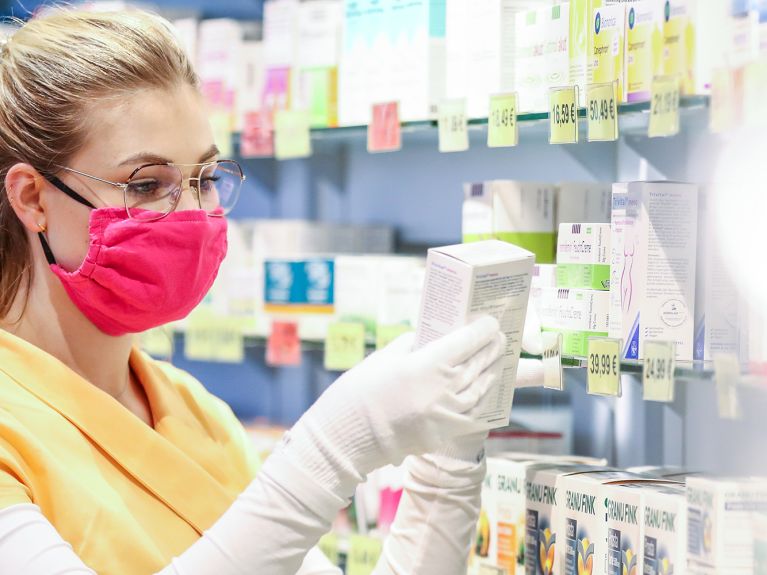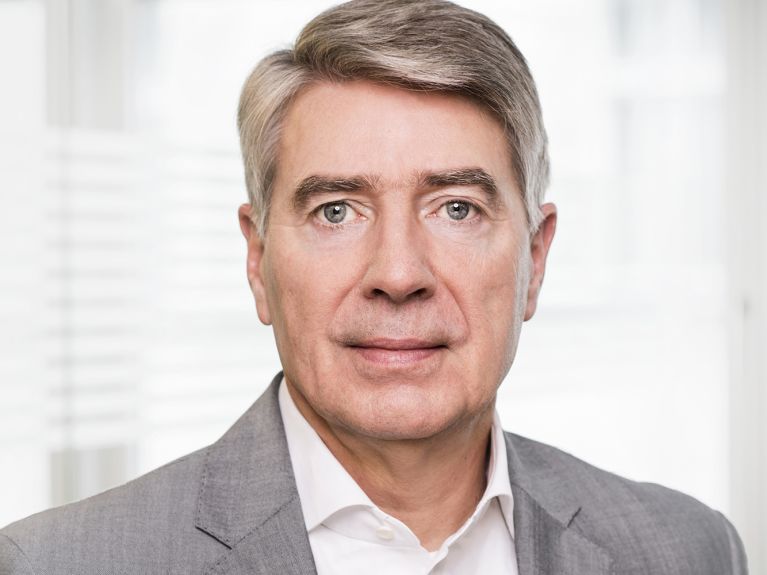Will there be a shortage of medicines?
Sector expert Han Steutel on possible supply bottlenecks for medicines from India and China and on Germany as a pharma industry hub.

Mr Steutel, pundits have of late increasingly been suggesting there may be delivery bottlenecks for vital medicines produced in India and/or China. Is there any truth to this?
Fundamentally speaking, production bottlenecks could occur in any country in the world. No one is impervious to technical issues or natural disasters. The Coronavirus pandemic, for example, hit pharma industry production facilities in northern Italy just as it hit those in China. Both countries struggled with the impact.
India has emerged as one of the most important producers of generic drugs the world over.
So why is it that so many medicines are produced in India?
I’ll get to India in a moment. Let us not forget, however, what things are like in Germany. It is one of the best manufacturing hubs for pharmaceutical products, which is why it is here that research-based pharmaceutical companies produce the medicines that are used against various cancers, rheumatic arthritis, strokes, diabetes and Hepatitis C. Vaccines to protect against influenza, FSME, rabies, tetanus, diphtheria, Ebola and Pertussis as well as other meningococcal diseases are also made in Germany. At this very moment, preparations are being made to produce Coronavirus vaccines. All of the products are patent-protected medicines. When these patents expire at some point in the future, the respective medicines can be made by anyone who has the technical facilities; they can be copied anywhere worldwide and then manufactured. Prices will then fall sharply. India has specialised in this segment of the lifecycles of medicines for decades now and has combined its technical know-how with a low cost structure to carve a place for itself amid the international competition. It has thus emerged as one of the world’s most important producers of generic medicines.

Could you tell us briefly in what countries or in which regions of the world do they produce the medicines sold in Germany?
The medicines deployed in Germany come from many different countries: from Germany itself, from its European neighbours, from North America, from India, China, Japan and Singapore. What I can say with certainty is that in 2019 Germany exported medicines worth some 4 billion euros to China and India. The value of the medicines imported from those two countries amounted to only half that, namely about 2 billion euros. The Chinese procure primarily patent-protected medicines from German and European producers, far more than we buy from them. Things are the other way round in the case of generic medicines and the base materials required for them: In this segment, China and India are the export titans. In a nutshell: China and India need us, and we need them.
Of late, voices have been heard calling loudly for the production of medicines to be relocated to Europe. What do you think of this?
I can only speak for the research-based pharmaceutical companies, and researchers prefer to look to the future rather than the past. The future looks rosier if Germany focusses specifically on producing the medicines of tomorrow, such as biopharmaceuticals, gene therapies, and vaccines, because Germany as a pharmaceutical industry hub is especially good at high-tech manufacturing. And this has just become more than apparent once again during the Coronavirus crisis. It is an obvious indicator of the direction Germany can take in the competition between international pharma hubs if we want to be successful tomorrow.
